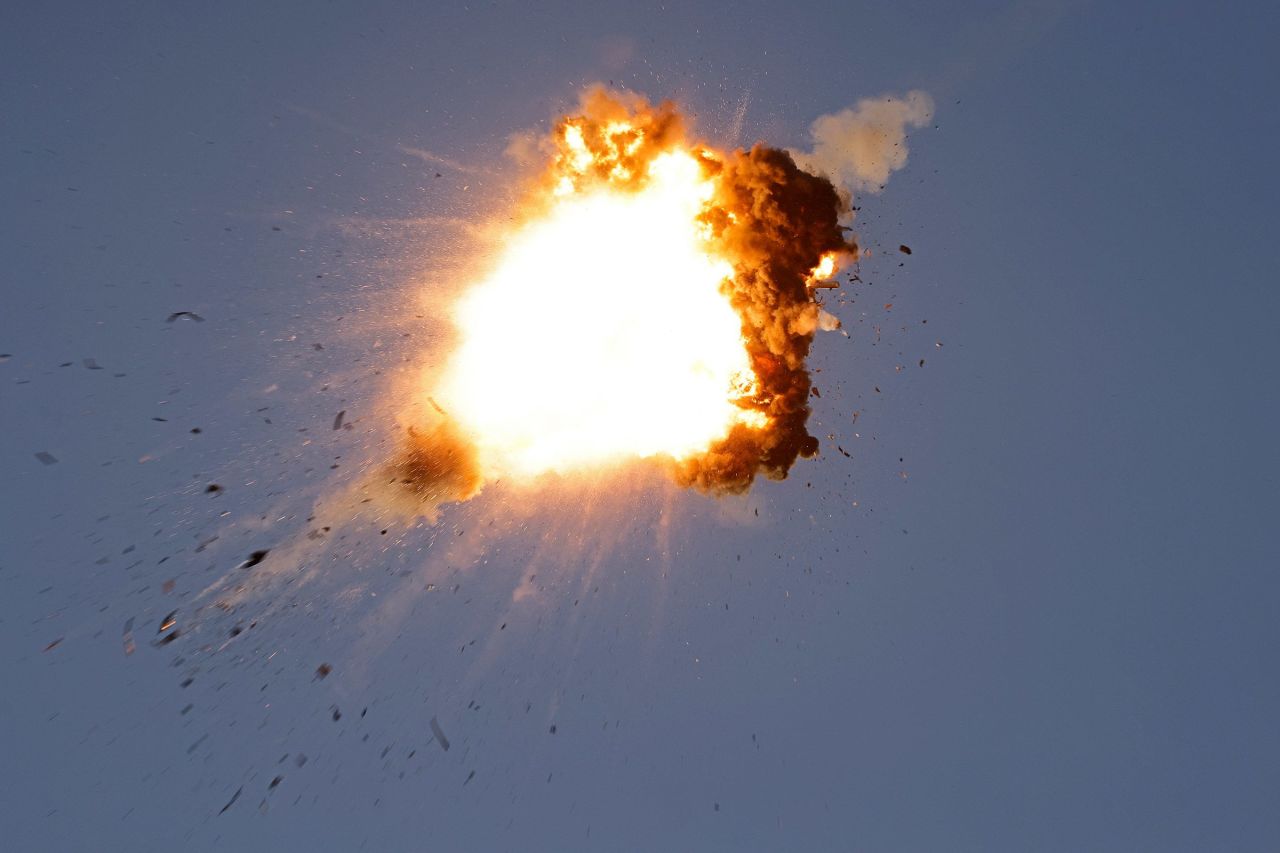On Sunday, Israel and Hezbollah engaged in their heaviest exchange of fire in months, raising fears of an all-out war.
Hezbollah claimed to have launched over 320 Katyusha rockets at 11 Israeli military bases and barracks. The targets included an intelligence base at Glilot near Tel Aviv, the Meron base, and four locations in the occupied Golan Heights.
This retaliation followed last month’s targeted killings of Hezbollah’s senior military commander Fuad Shukr in Beirut and Hamas’ political leader Ismail Haniyeh in Tehran, both committed by Israel.
Israel stated on Sunday that it had bombed thousands of Hezbollah launch sites in southern Lebanon with 100 jets, aiming to preempt the planned assault.
Hezbollah Secretary General Sayyed Hassan Nasrallah dismissed this as an attempt by Israel to save face. He claimed that Hezbollah successfully launched all its rockets and drones and accused Israel of downplaying the damage.
Neither side provided evidence to support their claims, according to the Associated Press.
Emergency situation declared in Israel
By mid-morning, the exchange of fire had ended, with both sides saying they had only aimed at military targets.
The Israeli military reported the death of a navy member, who was killed by either an interceptor or shrapnel from incoming fire, and injuries to two others during combat in northern Israel. Hezbollah and its Amal allies reported that three fighters had been killed in Lebanon.
In response to the escalating conflict, Israel’s Defense Minister Yoav Gallant declared a nationwide ‘special situation’ for 48 hours starting at 6 AM on Sunday. The Israeli army imposed restrictions on civilians in northern Israel and the Golan Heights, according to Al Jazeera.
Ben Gurion Airport was temporarily closed in the early hours, and some flights to and from Beirut were halted, leaving passengers stranded.
Nasrallah’s speech after attacks
Hezbollah leader Hassan Nasrallah addressed the nation in a televised speech following the intense exchange of fire on Sunday.
The attacks coincided with Arbaeen, marking 40 days since the death of Imam al-Hussein, the third Shia imam, and were chosen by Hezbollah to honor martyrdom.
In his speech, Nasrallah explained that the group had postponed its retaliation for the killing of Hezbollah’s senior military commander, Fuad Shukr, to allow time for progress in Gaza ceasefire talks.
He emphasized that their targets were Israeli military and intelligence facilities, deliberately avoiding civilian areas and public infrastructure like Ben Gurion Airport in Tel Aviv.
“To protect civilians in Lebanon and prevent harm from the enemy, we chose to avoid civilian targets in Israel,” Nasrallah said.
What’s ahead for Israel and Hezbollah
Fears of a regional conflict have risen after the assassinations of Hamas leader Ismail Haniyeh in Tehran and Hezbollah commander Fuad Shukr in Beirut.
Acknowledging the threat of a full-scale war with Israel, Nasrallah reassured the Lebanese public in his Sunday speech:
“At this current stage, the country [Lebanon] can take a breath and relax.”
Although Hezbollah did not use precision missiles in Sunday’s attack, Nasrallah said the group reserves the right to respond later if the attack did not meet their objectives. He also noted that Houthi rebels in Yemen and Iran had yet to react.
The Reuters news agency reported Israeli Foreign Minister Israel Katz as saying, “Israel does not seek a full-scale war but will act according to developments on the ground.”
However, Prime Minister Benjamin Netanyahu cautioned, “This is not the end of the story,” emphasizing Israel’s determination to defend itself.
“Whoever harms us, will be harmed,” he asserted.
The United States has reinforced its support for Israel by deploying significant military assets to the Middle East. This includes the USS Abraham Lincoln, which has joined another carrier strike group to deter potential retaliatory actions by Iran or Hezbollah.


